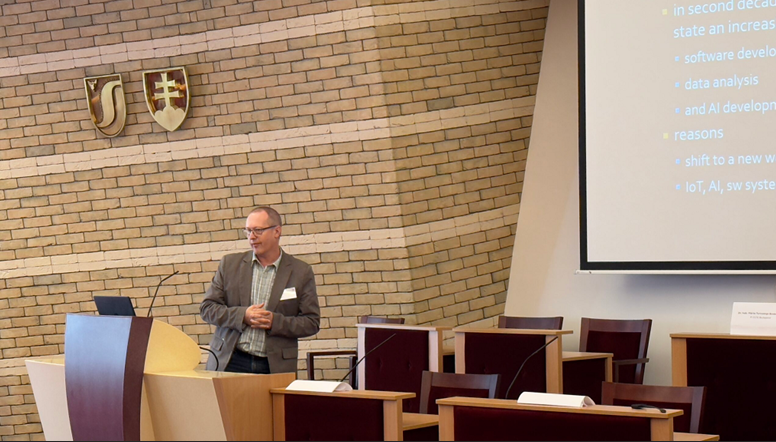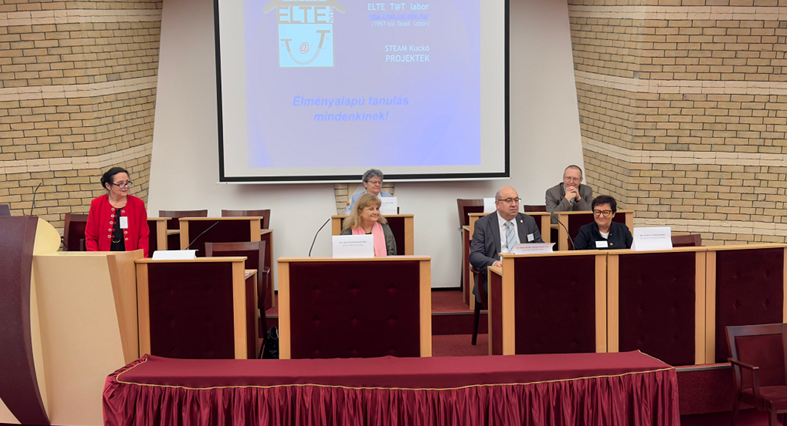On October 9, 2024, Jan Skalka delivered an invited speech at the international conference DIDMATTECH 2024 organized under the auspices of the rector of J. Selye University Dr. habil. PaedDr. Juhász György, PhD. The presentation focused on topics from three Erasmus+ projects conducted by the FITPED consortium, emphasizing innovative educational methodologies in programming education.
He addressed the critical issue of bridging the gap between algorithmic thinking and its application in writing program codes – a key skill required for employment in the IT sector. While pupils are introduced to algorithmic skills from the early years of primary education, many struggle to translate these skills into programming. This challenge is particularly evident in higher education, where programming language courses remain among the most demanding, with high failure rates.
The presentation highlighted a novel approach to addressing these challenges by adapting educational methodologies to the learning habits of Generation Z students. Recognizing the preference of this generation for smartphones, brief information displays, and immediate feedback, the proposed solution integrates these elements into programming education.
Central to the approach is the use of automated assessment systems and microlearning lessons. These tools provide short, focused content that aligns with the limited attention spans of learners while offering immediate feedback to reinforce understanding. Additionally, generative AI plays a crucial role by addressing frequently repeated questions, thereby enhancing the learning experience and reducing instructor workload.
The lecture also explored the potential of virtual educational environments to overcome beginner-level difficulties in programming. When designed effectively, these platforms can provide personalized support, foster engagement, and create a more accessible path for students to develop programming skills.
The presentation underscored the importance of leveraging technology and innovative teaching practices to improve programming education. The insights shared during the presentation offered valuable perspectives for educators and institutions aiming to prepare students for the evolving demands of the IT industry.
The article covered presented topics: Virtual Learning Environment for Programming Learning, http://didmattech.ujs.sk/invited-speakers/


